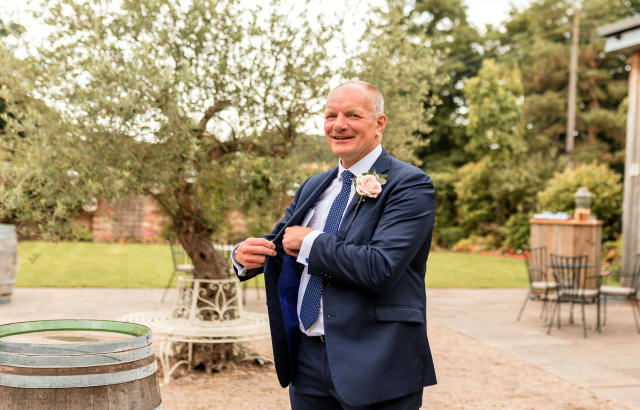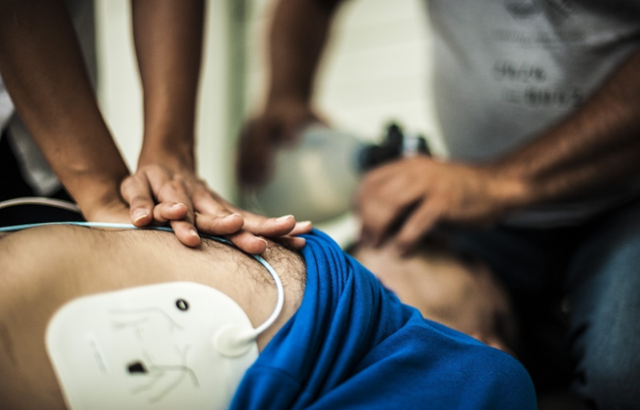

With the survival rates in the UK lower than 10%, David Jeffrey was one of the lucky few to survive a cardiac arrest out of hospital.

Nothing was out of the ordinary that day in 2016. There were no warning signs. David was working in central London and decided to go for a swim during his lunch break. “It was a really hot day, so I went to cool down on one of the sunbeds next to the pool to catch my breath after swimming. It was in that moment that I had my cardiac arrest and collapsed. I don’t remember what happened but the whole event was captured on CCTV, so I have watched my own clinical death and the chaos than ensued after my collapse.”
When the pool staff saw David had collapsed, they rushed over to administer first aid and called an ambulance. After a little confusion on what was wrong with David and mistaking his agonal gasps (which is the body’s reflex to low oxygen) to be breathing, one of the staff members realised he was turning blue in colour, and he couldn’t breathe. CPR was immediately started, and a defibrillator was used to kickstart David’s heart again. “I wouldn’t be here today if the staff hadn’t performed such good CPR and taken action to get a defibrillator.”
Since recovering, David has trained as a South Central Ambulance Community First Responder – a volunteer clinically trained to respond to 999 calls. “I have been to 5 cardiac arrests and resuscitated one person before an ambulance was on the scene so I feel I’ve succeeded in some sort of pay back for the first aid I received.”
Should people who’ve had a cardiac arrest be treated in specialist centres?
A cardiac arrest is a serious condition when your heart suddenly stops pumping blood around your body. This causes your brain to be starved of oxygen and fall unconscious or stop breathing.

Only one in 10 people who have a cardiac arrest out of hospital survive. BHF-funded Professor Simon Redwood and his team are currently assessing if a new way of responding to this medical emergency could give people a better chance of survival.
Currently, cardiac arrest patients are taken quickly by ambulance to the nearest A&E. But evidence suggests that they may have a better chance of survival if they go straight to a specialist hospital – a Cardiac Arrest Centre – with an experienced team.
In this trial, half of eligible patients will be taken to the nearest A&E as standard practice whereas the other half will go straight to the nearest Cardiac Arrest Centre. The patients’ survival and health up to one year after cardiac arrest will be recorded. The results will inform best practice for treating cardiac arrest all across the UK and could save many thousands of lives into the future.
Do you want to hear more from David Jeffrey and Professor Simon Redwood?
Watch our Live & Ticking event


